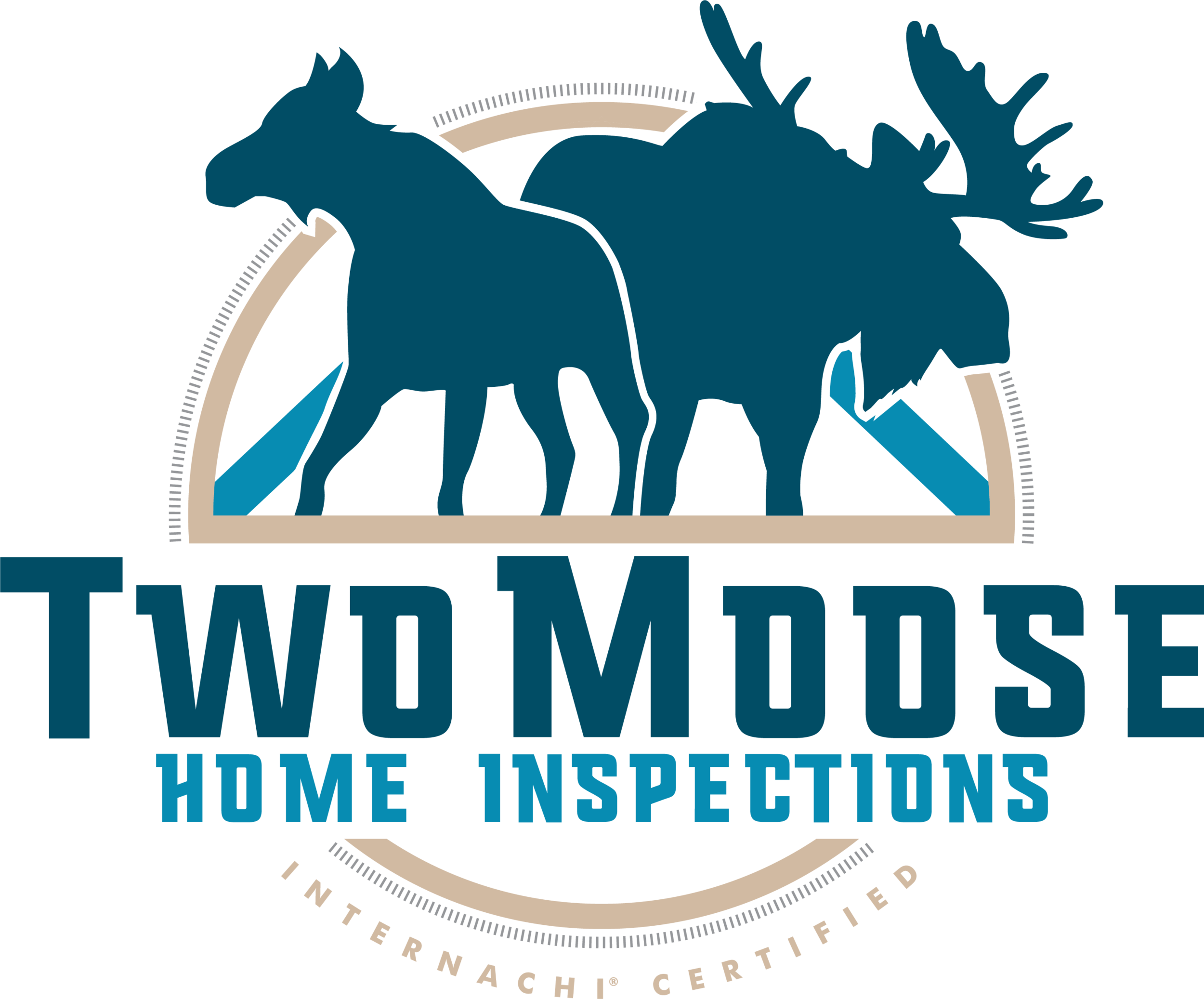S01E25 - Perception and Pixels: iPads Used to Inspect Homes
Transcript
Welcome to Moose Tales. I'm Jon with Two Moose Home Inspections and I have some short home inspection topics I want to discuss. So, let's dive right in.
I want to talk about why it is that we use iPads as opposed to using just cell phones whenever we're doing our home inspection and home inspection reports.
as a home inspector, whenever we're doing the home inspection, I'll find a deficiency. Take a photo, see what the deficiency is, and then move on to the next.
It's important to understand that we no longer do paper. We no longer print off pictures. We don't do three ring binders. That's all in the past. Everything is electronic. And so, with it being electronic, all of the software that we use is on a mobile device. So basically, I could just use a cell phone whenever I'm doing my inspection report.
But we don't. So why don't we use a cell phone? Why instead do we use an iPad?
The two long didn't read answer to why we use an iPad as opposed to using a cell phone is perception. It is the perception of the realtor's perception of the seller's perception of the buyers. And what do I mean by that? Are they like, wow, these guys can afford an iPad. Wow. Well, no, that's not it at all.
Nobody cares if we have an iPad. Nobody really cares if we have a cell phone. They don't care what version of iPhone we have. They don't care about any of that stuff. What they do care about is if they see a home inspector standing there in the middle of the room looking at a cell phone while they have a cell phone, and the way in which they might use their cell phone is to browse some sort of social media to look at photos, to text a friend or a family member or to look something up on the Internet.
They don't necessarily use their cell phone for work unless it is a work phone call.
So, with that being said, if I have an inspector standing in the middle of the room looking at his or her cell phone, well, that just kind of looks bad because the perception might be, look at that inspector working so hard, looking at his cell phone, so diligent.
But the reality is they're going to say, why is that person on their cell phone? They should be inspecting the house for me, not understanding that all of the software that we use is on a mobile app. So, to avoid this whole thing and follow our core values, which the first one is professionalism first.
And so, you might say to yourself, okay, they use iPads as opposed to iPhones. So how is that more professional? Well, the reason why is because if somebody has an iPad that is not necessarily their personal device, the initial thought that you might have, if a professional comes to your house, your property, whatever it may be, and they have an iPad, you normally think, that was issued by their employer.
Therefore, that is a work asset. That is a work device. Therefore, work is being performed on it. Our lives would be a lot easier if we could just use our cell phones, which I mean, we could the software works flawlessly on a cell phone. However, we need to be aware of the perceptions that people have of us, what their expectation is while we're working.
And so if we have an iPad and we're standing there on an iPad and we've been there for maybe 2 minutes looking up a deficiency, writing some notes, doing whatever that is, showing that we are on an issued device, a work device, hopefully doing work, which I mean, of course we are. But the perception is much better to be on an iPad than it is to be on a cell phone.
Now, let's talk about another couple of things. I think that iPhones have a lot more capability, better cameras, and so on and so forth. And I think you can do a lot with those. The benefit of the iPad is that when we talk about our reports, there wasn't always the time that we did our reports in the field. And I don't want to go too deep into our reports because that can be a whole other podcast on its own.
We didn't always use the mobile app in the same way that we use it today. Before we used to take photos, snap a whole bunch of photos, then go back and type out each and every single deficiency because we didn't have a robust, huge tablet that has all of these deficiencies already preprogramed into it. Now you can buy templates from other people, but I've kind of found that those are lackluster.
And so, for me, I spent a considerable amount of time, actually three months, and then we can get into all that on another podcast. But three months typing out all of these different deficiencies, thinking about each and every single one that I've seen that I think I could see, so on and so forth. And now we have almost 5000 unique deficiencies.
Now, whenever I say 5000 unique deficiencies,
I don't mean like the blue tile is cracked, the red tile is cracked, the pink tile is cracked. What I mean is that the tile in the bathroom shower is cracked, the tile on the bathroom floor is cracked, the tile on the main entry is cracked.
And yeah, that's a lot of them. But what's really nice about that is those are just very broad examples. The really nice thing about that is that then based off of manufacture, based off of location, based off of a lot of different things, it's already preprogramed in there. And so, all we do is type in a few keywords and then bam, we already have the deficiency pre-written for us.
We take a photo, and the inspection report writes itself because of the amount of time and effort that was put ahead of time. So, whenever you have a cell phone, the downside is you can't really see all of the deficiencies on the cell phone. You have a certain number of lines that can be scrolled. You have a certain amount of width to be able to read what the deficiency is talking about, to make sure you select the correct one.
And so, with the iPad, we actually have a lot more real estate to be able to see more clearly, a larger list of deficiencies.
to be able to find the deficiency that we want to move on to the next step of the home inspection. And so overall, the iPad is really good from a perception standpoint, but also because of the size of the screen, it allows us to see a lot of the deficiencies that otherwise might be hidden on the next scroll, the next page, whatever it may be, on a cell phone.
A lot less squinting and a lot better in that regard. However, I would love to be able to just put something in my pocket as opposed to having a large iPad that has to connect to our harness.
And the last thought on iPad versus an iPhone is basically when we do our summary with the people that have shown up to their home inspection, we already have a completely written report with photographs, with videos ready to rock and roll. We literally just have to press, publish, and then we're done. Now, let's be frank. You don't actually get to just hit publish.
You have to go back, and you might be adding different photos. You might be enhancing the report in different ways and even you get home. But in general, it's maybe an extra half hour, 45 minutes worth of secondary work that we do to make sure that we just have like the most perfect home inspection report that we can.
But on site, our rough draft is ready to go, and we have a large screen. So, whenever we have multiple buyers, realtors, whatever it may be, we have a large bright screen that everybody can see as we're giving our presentation about the deficiencies that we found. And what I love about that is that we can do the entire summary looking at the iPad, looking at the photos, reading the deficiencies together, if they want to get into that level of detail, and then we can go on a tour, we can walk around and we can say, Hey, you had a question about this and this.
Let me show you exactly where this is. Let me show you why I am not worried about it or why I am worried about it and what you can do about it to make sure it's not an issue in the future, regardless of whether you can negotiate for it or not. Let me help you. And so, by having that personal connection, as we said previously, that is just massive.
But having that large screen allows everybody to be a part of it. And it kind of just becomes like a big sit down as a group, as a family, whatever. And like, we're here to help you and we're together as a team and we're going to make it happen. And that's why I love the iPad over having a smaller screen, smaller device, and that's a Pod.


